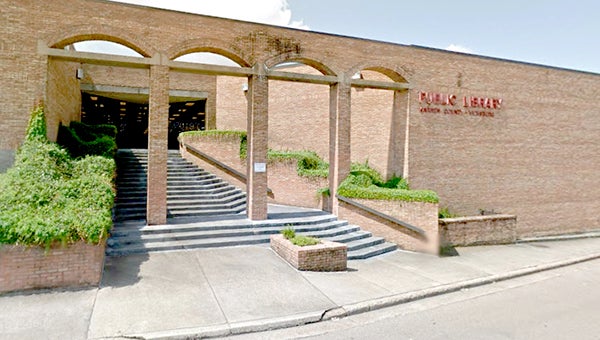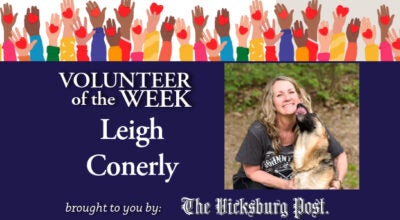Library Column: Self-Help Nonfiction
Published 8:00 am Saturday, October 2, 2021
This column was submitted by Evangeline Cessna, Local History Librarian at the Warren County-Vicksburg Public Library.
This week’s column features Self-Help/Psychology titles in our New Adult Nonfiction.
Author Oliver Burkeman offers readers tools for building a meaningful life in “Four Thousand Weeks: Time Management for Mortals.” Why 4,000 weeks? Well, that is the average human life span. We all know there is never enough time, no one needs to remind us. We have become obsessed with writing to-do lists, have overfilled inboxes, seeking work-life balance and are continually battling against distraction. These things end up making our anxieties worse and the most meaningful parts of life are left by the wayside. We rarely make the connection between our daily struggles with time and the ultimate time management problem: the challenge of how best to use our four thousand weeks. Burkeman draws on both ancient and modern philosophers, psychologists, and spiritual teachers to deliver an entertaining and humorous, practical and profound guide to time and time management. Ultimately, he shows us that the unproductive ways we’ve come to think about time aren’t inescapable truths, but choices we have made as individuals and as a society — and that we can do things differently.
Greg Sazima, MD offers readers a way to “master the nuts and bolts of meditation without the crystals and granola” in his book, “Practical Mindfulness: A Physician’s No-Nonsense Guide to Meditation for Beginners.” This book approaches mindfulness and meditation from a practical, how-to, irreverent perspective — appealing to those who are curious about meditation but raise their eyebrows at the New Age philosophy that tends to accompany it. Sazima’s training will help you learn to spend more time in real engagement with the world and help you cultivate a deeper appreciation of everyday experiences so that you can live your life more fully, wisely and joyfully. Sazima is a board-certified psychiatrist, medical educator, experienced meditator and meditation teacher who used meditation to help him through a bout of a rare bone cancer. He is now on a mission to teach others why and how meditation works and how to practice it sensibly.
Along the same lines as Sazima’s work is “The Awakened Brain: The New Science of Spirituality and Our Quest for an Inspired Life” by Lisa Miller, Ph.D. The author weaves her own personal experiences with meditation and spirituality with her groundbreaking research to offer readers options for tapping into a heightened awareness of the world around us and our place in it. She spotlights cutting-edge science from MRI studies, genetic research, epidemiology and more to help readers understand and engage spirituality in our lives. Human brains become more resilient and robust as a result of it and anyone — from business leaders and government to teachers and parents — can use the principles Miller lays out to help them on their own journey. When we allow ourselves to use awakened perception, we are more creative, collaborative, ethical, and innovative. An engaged spiritual life enhances resilience and optimism while providing insulation against addiction, trauma, and depression. Finally, we learn that loss, uncertainty, and even trauma are the gateways by which we are invited to move beyond merely coping with hardship and move beyond into a life of renewal, healing, joy, and fulfillment.
Christopher Cox explores the power of deadlines as uniquely effective tools of motivation and empowerment in “The Deadline Effect: How to Work Like It’s the Last Minute — Before the Last Minute.” Both perfectionists and procrastinators agree that deadlines are dreadful. A ticking clock can signal anxiety whether you are finishing a big project or just checking off your to-do list. Cox set off to observe nine different organizations as they approached a high-pressure deadline in order to find the secret of managing timelines. What he discovered is that these experts didn’t just meet their big deadlines, they became more focused, productive, and creative in the process. Cox gathers the strategies these teams used to guarantee success while staying on schedule. He also explains how readers can understand the psychological basis of expectations and time, the inner workings of teams and customers, and techniques for using deadlines to make better decisions.
In “Love After 50: How to Find It, Enjoy It, and Keep It,” author Francine Russo assembles a comprehensive and warm guide to finding, keeping, and enjoying love after 50. Studies show that love after 50 is more satisfying than at any other stage of life. It makes sense: at this stage, you are more emotionally stable and more focused on the present; you know what you absolutely have to have, but also what you can live without; partnering is no longer about building family or fortune, but about sharing intimacy. Russo’s practical advice includes:
- How to recover from the emotional damage of divorce, the grief of widowhood or a history of unfulfilling relationships.
- How to build realistic requirements for a partner.
- What attitudes to bring to dating.
- How to evaluate financial, emotional and practical results of marrying, living together or living apart.
- Finally, how to deal with (hostile) adult children to safeguard your relationship and family.
This book is full of stories of real people who have overcome their pasts to form healthy, nurturing partnerships.





